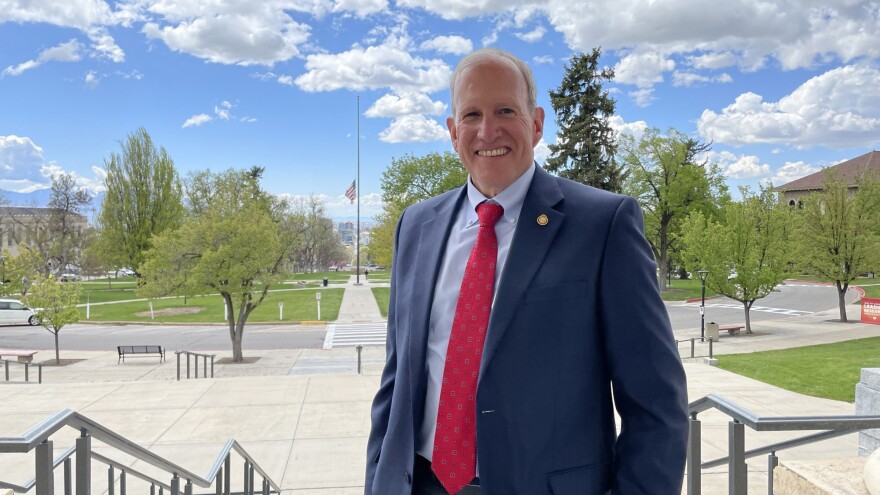Keith Squires is the University of Utah’s new chief safety officer.
The former Utah Commissioner of Public Safety had served in the position on an interim basis since last June. Squires has over 30 years of experience in law enforcement and was a member of the independent review committee that looked into the school's handling of Lauren McCluskey's murder.
It made 30 recommendations for changes that should be made following the tragedy — all of which have since been implemented, according to University officials.
He’s taking over the role after Marlon Lynch — the first to hold the position — left for a similar job at Michigan State University.
Lynch’s departure, along with that of former police chief Rodney Chatman and ongoing concerns about how the university handled McCluskey’s case, have complicated the relationship between students and administrators and increased skepticism around their commitment to safety and transparency.
“A lot of students just do not trust campus police,” said Tiffany Chan, a third-year student and vice president of university relations for the U’s student government group. “They don't trust what any authority figure has to say and that's what's causing a lot of tension between students and administration.”
Squires said rebuilding that trust is one of his top concerns. He said there have been some important developments in that area, including establishing advisory committees with student participation and the SafeU Student Ambassador program.
He also said he’s made it a point to solicit feedback from the campus community on changes to police procedures and policy, such as with the recently approved rule around body cameras.
“I feel like the time involved in that and what we ended up with at the end really reflects what the community is comfortable with,” Squires said. “It also gave us a chance to explain what our desires are and why we feel this is a valuable tool.”
He said he’s working to increase collaboration both within the university’s police department and among various organizations on and off campus, such as the Salt Lake City Police Department and Huntsman Mental Health Institute. The siloing of campus police was one the key failures that led to McCluskey’s death, he said.
“We really want that officer who's responding to a call or a member of our community who's in need to be able to assess the situation and be able to keep the peace, but then also be able to look at what other resources are available to them,” Squires said. “If those resources aren't really being coordinated then they're just missed opportunities.”
Luis Ramirez, a junior and intern in the university president’s office who works on campus safety initiatives, said he feels the administration has done a good job with providing more resources to students and opening the dialogue around safety efforts.
He said he’s been impressed by Squires’ willingness to hold public conversations with students about campus safety issues, such as a recently-launched series called “Courageous Conversations.” Ramirez said he attended the first event last semester and was surprised to see safety officials engaging with students who were advocating for abolishing the campus police altogether.
“I found that really interesting that there is this dialogue between the chief of police and a student and how there are these two differing opinions,” he said. “But we were able to come together in this space and have that conversation.”
Maryan Shale, the student government’s vice president of student relations, said she’s supportive of Squires’ hire and feels he does genuinely care about students and improving the campus climate. But she’ll also be watching to see how present he is on campus and how open he’ll be to feedback from students.
She said the signs of a safer, more inclusive campus environment will be increased student engagement in clubs and organizations and better student outcomes, particularly among those from marginalized backgrounds.


